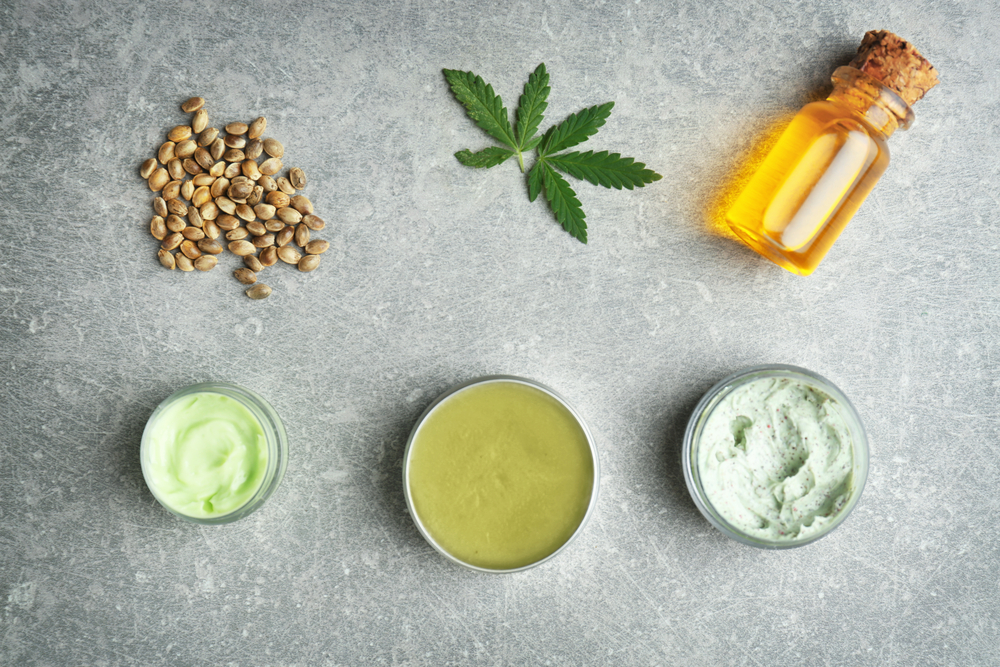by Charlotte Peyton, Independent Consultant, EAS Consulting Group
The hemp industry is the marijuana industry’s half-sister. Both are variations of the plant cannabis sativa and both were made illegal in 1937 with the passing of The Marijuana Tax Act. Flash forward to the Agriculture Improvement Act of 2018 (known as the 2018 Farm Bill) that was signed into law by Congress on December 20, 2018. One year later, The USDA issued interim regulations that entitled Establishment of a Domestic Hemp Production Program for the cultivation of hemp on October 31, 2019. Both were huge steps forward for public access to hemp and hemp products. FDA legalized the growing of hemp in states with a state-mandated hemp program and removed hemp and its derivatives from Drug Enforcement Administration (DEA) Schedule I status and the U.S. Domestic Hemp Program aims to approve cultivation plans issued by states and Indian Tribes.
Even so, then FDA Commissioner Scott Gottlieb issued a statement hours after the signing of the Farm Bill reiterating that “Congress explicitly preserved the agency’s current authority to regulate products containing cannabis or cannabis-derived compounds under the Federal Food, Drug, and Cosmetic Act (FD&C Act) and section 351 of the Public Health Service Act.”
Still today, two years later and counting, FDA only permits CBD products submitted as an Investigational New Drug (IND) Application as a pharmaceutical and there remains only one such accepted CBD product, Epidiolex, manufactured by G.W. Pharma. All other CBD products are illegal for interstate shipment.
In-state production and sales may be a different story, provided that state has a mandated hemp program. In those cases, provided state law is followed, production and sales are legal and protected, but the minute products cross state lines, they become the jurisdiction of the federal government and, more specifically, the FDA. At least 47 states have enacted legislation to establish hemp production programs or allow for hemp cultivation research.
Section 10113 of The 2018 Farm Bill states that (c) Nothing in this subtitle shall affect or modify:
(1) the Federal Food, Drug, and Cosmetic Act (21 U.S.C. 301 et seq.);
(2) section 351 of the Public Health Service Act (42 U.S.C. 262); or
(3) the authority of the Commissioner of Food and Drugs and the Secretary of Health and Human Services- ‘‘(A) under- ‘‘(i) the Federal Food, Drug, and Cosmetic Act (21 U.S.C. 301 et seq.); or ‘‘(ii) section 351 of the Public Health Service Act (42 U.S.C. 262); or ‘‘(B) to promulgate Federal regulations and guidelines that relate to the production of hemp under the Act described in subparagraph (A)(i) or the section described in subparagraph (A)(ii).”
The mission of the FDA is “to ensure the safety, effectiveness, and security of human and veterinary drugs, vaccines and other biological products for human use, and medical devices.” As such, FDA categorizes every product for sale in the U.S. which is either ingested or applied to a human or animals into categories. That means hemp-derived CBD products will have to lawfully fit into one of those categories, however, while there has been positive movement towards the legal sale of hemp products on the USDA cultivation side, the FDA has authority over foods and dietary supplements, and the FDA’s position is that the addition of hemp/CBD to a food or dietary supplement is “violative.” In a Consumer Update statement revised on November 25, 2019, the FDA clearly stated that “it cannot conclude that CBD is generally recognized as safe (GRAS) among qualified experts for its use in human or animal food.”
That being said, FDA has indicated it would be open to review of safety data for submission of a cannabinoid as Generally Recognized as Safe (GRAS) for Food or as a New Dietary Ingredient (NDI) in a supplement as the lack of any federal regulation runs the potential of putting people at risk. That has sent the industry scurrying to design and initiate studies in the hopes of demonstrating levels of safety that meet FDA’s satisfaction.
In the meantime, those currently operating in states where hemp manufacturing is legal, must ensure Good Manufacturing Practices (GMPs) are adhered to closely. Should the FDA ever allow hemp products with CBD to be sold in the future, a manufacturer’s ability to demonstrate understanding and compliance with GMPs will be critical. Each FDA regulated industry has its own set of GMPs for the development and implementation of quality systems.
- 21 CFR 117, Current Good Manufacturing Practice, Hazard Analysis, and Risk-Based Preventative Controls for Human Food
- 21 CFR 507, Current Good Manufacturing Practice, Hazard Analysis, and Risk-Based Preventative Controls for Food for Animals
- 21 CFR 111, Current Good Manufacturing Practice in Manufacturing, Packaging, Labeling, or Holding Operations for Dietary Supplements
- 21 CFR 210, Current Good Manufacturing Practice in Manufacturing, Processing, Packing, or Holding of Drugs; General
- 21 CFR 211, Current Good Manufacturing Practice for Finished Pharmaceuticals
- FDA Draft Guidance for Industry, Cosmetic Good Manufacturing Practice, June 2013
As the industry waits in the hopes that FDA will come on board with those states that have already legalized CBD’s use in products, it important to take the necessary steps to develop GMP protocols and quality systems as part of documented Standard Operating Procedures and record-keeping that those procedures are being followed, products are being tested and those tests are being validated.
Ensure as you begin to develop or strengthen your GMP programs that you do so with a full understanding of the requirements set forth in 21 CFR 111. Whether these programs are designed in-house or with the assistance of an outside consulting firm, ensure your GMPs are specific to your manufacturing procedures as opposed to a stock one-size-fits-all program. A reputable consulting firm with demonstrable expertise in FDA regulations and in helping to develop these GMPs is a good place to start, one that listens to your questions and concerns before providing you their stock answer. A good consulting firm can walk you through your unique processes.
Ensure your quality systems are robust and documented, including your demonstrations that your cGMPs are being followed.
 Charlotte Peyton supports EAS Consulting Group CBD and hemp clients as well as that of dietary supplements and pharmaceuticals. As an independent consultant, she assists with projects ranging from startup through manufacturing and support. Her expertise includes quality, regulatory and management, method development, and method validation for FDA regulated drug, dietary supplement, and bioanalytical samples. She has extensive experience in writing validation protocols, reports, and SOPs and assists with implementation of stability programs and report writing for finished products.
Charlotte Peyton supports EAS Consulting Group CBD and hemp clients as well as that of dietary supplements and pharmaceuticals. As an independent consultant, she assists with projects ranging from startup through manufacturing and support. Her expertise includes quality, regulatory and management, method development, and method validation for FDA regulated drug, dietary supplement, and bioanalytical samples. She has extensive experience in writing validation protocols, reports, and SOPs and assists with implementation of stability programs and report writing for finished products.
EAS Consulting Group, a member of the Certified family of companies, is a global leader in regulatory solutions for industries regulated by FDA, USDA, and other federal and state agencies. Our network of over 150 independent advisors and consultants enables EAS to provide comprehensive consulting, training, and auditing services, ensuring proactive regulatory compliance for food, dietary supplements, pharmaceuticals, medical devices, cosmetics, tobacco, hemp, and CBD.


Follow NCIA
Newsletter
Facebook
Twitter
LinkedIn
Instagram
–